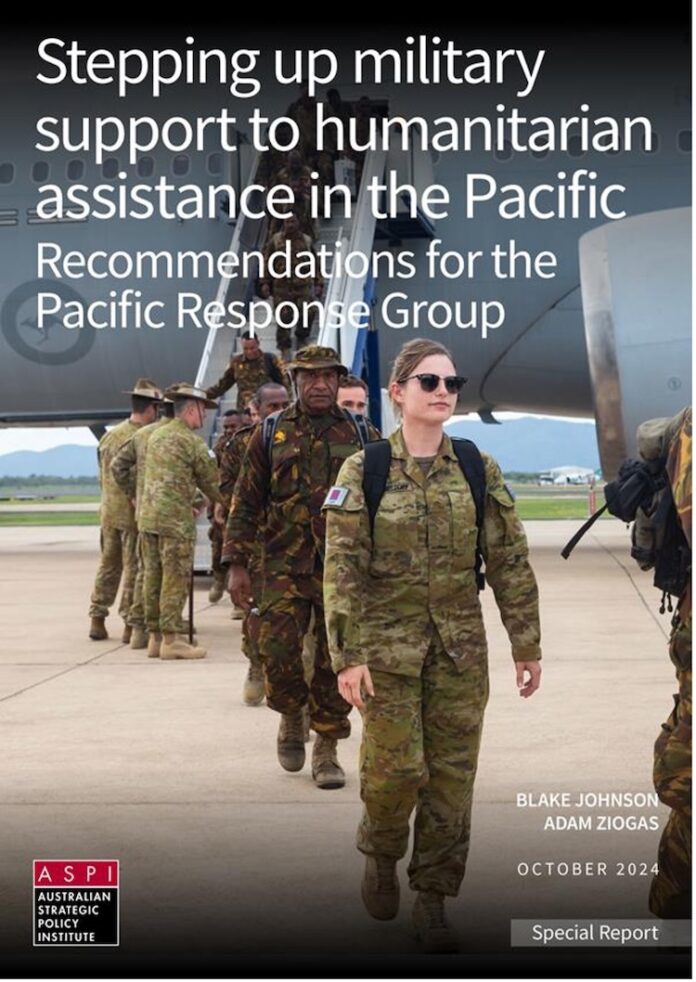Australia and Pacific partners should consider expanding their newly formed military rapid response group for disaster relief as soon as next year, with climate change fuelling increasing natural disasters and geopolitical competition rising in the region, a new Australian Strategic Policy Institute report recommends.


